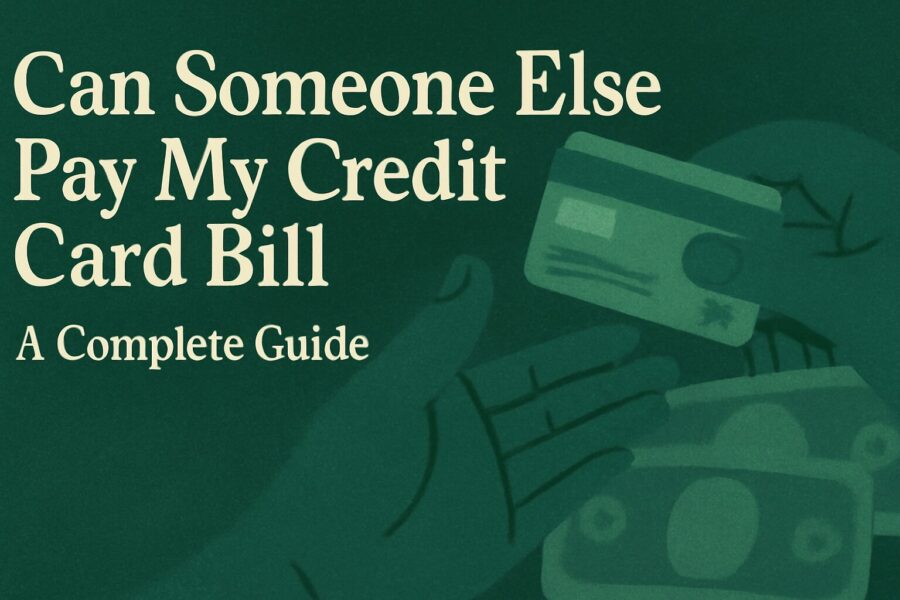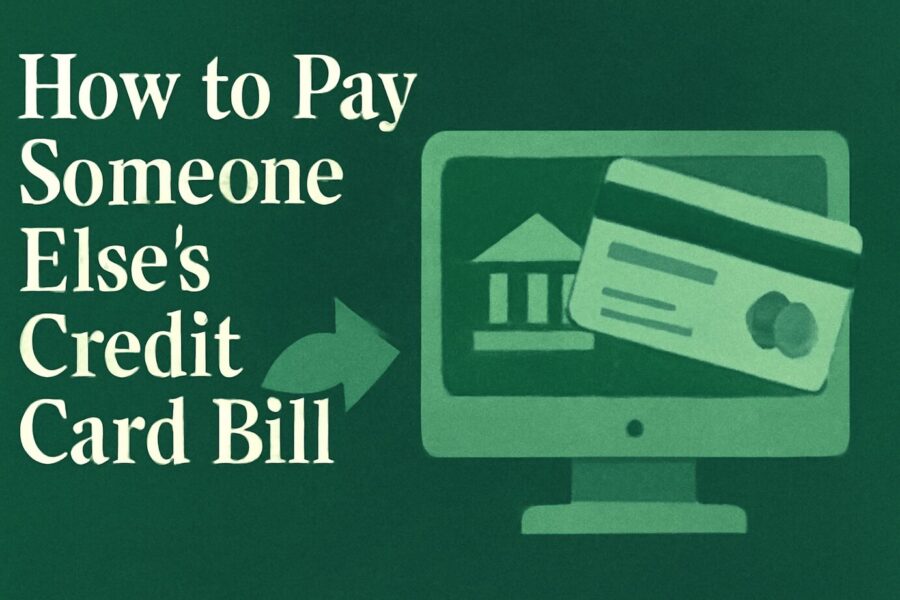Can Someone Else Pay My Credit Card Bill: A Complete Guide
- 28 Oct 25
- 6 mins

Can Someone Else Pay My Credit Card Bill: A Complete Guide
Key Takeaways
- During financial strain, if you have wondered, 'Can someone else pay my credit card bill', then the answer is yes, it is possible for a third-party to pay your credit card bill.
- Many credit card issuers allow the option for third parties to pay credit card bills on the behalf of the user, though there are some terms and conditions for it.
- Many digital tools allow for others to pay a user's credit card bills, with online payments being a common tool for the same.
- It is advisable to transfer small amounts of money to your account instead of the third party taking on the burden of paying your credit card bills directly.
- Paying over ₹50,000 in credit card bills in a financial year, on behalf of someone else may be taxable under Gift Tax Exemption rules.
Paying a credit card bill is simple. Anyone can do it as long as they know the issuer’s name, account number and amount due. While it is not the usual practice, the issuer does not mind as long as payments are made on time.
Moreover, in today’s digitally friendly environment, there are multiple online ways to execute this type of payment without the need for any kind of verification. Well, answering your question, “can someone else pay my credit card bill?”, let us learn different ways someone else can do that.
Do Credit Card Issuers Allow Someone Else to Pay My Credit Card Bill?
Most credit card issuers allow a third party to pay your bill on your behalf. However, before arranging this, it is important to check your credit card issuer's website to ensure they permit third-party payments.
How to Pay Someone Else's Credit Card Bill

In times of financial strain, seeking support from friends or family can be a practical alternative to taking out a personal loan. Here's how they can help by paying a credit card bill for you:
- Pay Online
Step 1: Access your bank account details online via their official website or mobile app.
Step 2: Enter the account information of the person for whom you need to pay the bill and mark it as a payee.
Step 3: You will need the credit card account number of the person if you are going to pay their bills on a regular basis.
Step 4: Set the bill payment on autopay to simplify the process and avoid unwanted late fees and huge interest rates.
- Pay via Phone
Step 1: Call the number available on the back of the card and get in touch with the issuing bank’s customer service.
Step 2: You might have to go through a security verification process, and then they will guide you through the process ahead and help you with the bill payment process.
Step 3: You must ask them about the card details that you might need to collect from the cardholder and pay online.
- Pay via E-Mail
Step 1: The owner of the card receives their credit card statement at the end of their period. On the statement, details like balance owed, due date and mailing address are available.
Step 2: Get the details on the statement from the person, including the mailing address.
Step 3: You can pay the due amount at that mailing address by sending a check or a money order.
Step 4: The mailing process takes time, as it takes time for the mail to be delivered and opened by the banking executives. Make sure you provide enough time to the issuing bank to avoid late fees and interest on bill payment.
- Visiting the Issuing Bank’s Branch Office
Step 1: Know the bank’s name that issued the credit card to that person and visit the nearest bank branch in person.
Step 2: You will need to provide the account number, personal information and a security password for verification purposes.
Step 3: Once they find the details, you can pay their due amount via cash or a check, depending on the bank’s policy.
What Will Be The Impact on Taxes When Someone Else Pays Off Your Credit Card Bill as a Gift?
When someone else pays off your credit card bills, whether you are liable to pay taxes on it or not, depends on the amount you receive. Generally, there is no tax on gifts received.
However, you must report the gift if you receive more than ₹50,000 in a financial year as gifts, which is the threshold in the Gift Tax Exemption Rule. If the amount exceeds ₹50,000, you will have to pay tax on the entire gift amount you receive.
Reasons Why Someone Might Pay Your Credit Card Bill
It is typically not normal for someone else to pay your credit card bills, especially on a regular basis. However, there are no rules that put a limitation on this if someone does. Here are some common reasons for someone to pay your credit card bills.
- Someone in your family or friends can help you when you are struggling financially or are unemployed.
- Someone who is clearing off their previous debts that they owe you.
- They are paying as their responsibility when you grant them the power of attorney.
- If someone is helping you out when you are sick or are unable to pay on your own.
💡For easy and secured credit card bill payments, use the PICE App.
Conclusion
Answering your question “can someone else pay my credit card bill?” Well, yes! Someone else can pay your credit card bill and the simplest way is that they can just transfer the amount in your account through UPI and you can pay it. This is the best option for low amounts. Since banks, in most cases, do not scrutinise unless the transaction is beyond ₹2-3 lakh.
However, remember, it is very easy to fall into debt traps these days when banks are always ready to give credit cards with a high credit limit. It's your responsibility to keep the spending within your repayment capacity.
 By
By 

















